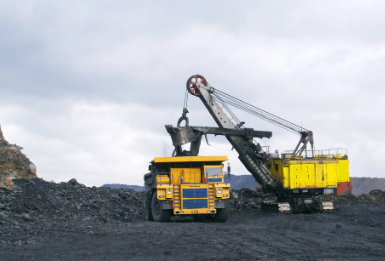Amid the growing global environmental challenges, the circular economy concept provides a beacon of hope. The coal sector, frequently criticised for its environmental impact, is now at a crucial juncture. How can this sector, vital for India’s energy security, embrace sustainability within a burgeoning startup ecosystem? The answer lies in adopting innovative policies and practices grounded in circular economy principles.
During the Indian Circular Economy Forum (ICEF) 2024, key industry and government stakeholders convened to discuss these critical issues. Among them was the official of the Ministry of Coal, who shared exclusive insights into the ministry’s initiatives and development strategies. The Ministry of Coal has been meticulously designing its policies and implementation strategies with the circular economy in mind. All products, processes, and programs are developed with this concept at the forefront. A significant focus area is the use of heavy equipment machinery. “We ensure that our heavy equipment machinery used in coal mining adheres to the best possible standards. This not only enhances operational efficiency but also minimises environmental impact,” said the official. Initiatives such as the continuous and surface miners and efforts to improve first-mile connectivity aim to reduce environmental degradation.
The coal sector faces the dual challenge of balancing traditional practices with modern technological solutions. “We are adopting and adapting our current methods, integrating new technologies and processes to improve the coal mining environment,” the official explained. Diversification is another key area, with the ministry exploring alternative energy avenues, including solar power. One notable change has been the relocation of thermal plants to the pithead, significantly reducing the need for coal transportation and its associated environmental impacts.
Startups play a crucial role in driving innovation and promoting a circular economy. The ministry has expressed a strong commitment to supporting these ventures. “The Honourable Prime Minister has been focusing on startups and incubators. Each IIT in India has been assigned a specific sector; for coal, it’s IIT ISM. Coal India, our public sector undertaking, was one of the original contributors in setting up this centre,” the Additional Secretary stated. The incubation centre nurtures young startups developing technology-based solutions. “You can simulate an entire mine from a room, observing minute processes in action. Such innovations, sponsored by labs, are paving the way for exciting advancements,” he added.
Adopting a circular economy is not without challenges. The Additional Secretary highlighted that technology penetration remains a significant hurdle. “While larger companies can adopt new technologies faster, ensuring both downstream and upstream linkages integrate these innovations remains a challenge,” he noted. However, he emphasised that these challenges often bring out the best in everyone. The benefits to companies, in terms of both their bottom lines and the value they add to society, will drive widespread adoption of better practices.
“This is the third chapter of ICEF India, bringing together policymakers, practitioners, and think tanks to seek solutions. With a focus on technology and innovation, such forums are crucial for addressing problems and finding collaborative solutions,” he concluded, calling for more frequent gatherings to foster collaborative networks and drive the circular economy agenda forward. The coal sector’s transition towards a circular economy is a complex but necessary journey. With the Ministry of Coal’s initiatives and support for innovation, there is hope for a sustainable future. The insights shared at ICEF 2024 underscore the commitment and steps being taken to balance tradition with innovation, ensuring that India’s coal sector can responsibly meet present and future demands.


